
saudi Arabia’s Shura
(Consultative) Council (Photo: alarabiya net)" width="300" height="183" /> Saudi Arabia’s Shura (Consultative) Council (Photo: alarabiya net)Riyadh, 4 Rabiul Awal 1436/26 December 2014 (MINA) –Two women made history in Saudi Arabia’s Shura (Consultative) Council by becoming the first women to sit on the house’s Islamic and Judicial Affairs Committee.
Dr Lateefa Al Shaalan, an associate professor at Princess Noora University, and Dr Khawla Al Karie, the director of the Research Centre for Children’s Cancer at the King Faisal Specialist Hospital and Research Centre, were selected members as the Council named the heads and members of its committees for the third year of its Sixth Session.
The Council also chose six women members as deputy chairpersons of the committees, gulfnews quoted by Mi’raj Islamic News Agency (MINA) as reporting on Friday.
Huda Bint Abdul Rahman Al Halisi was chosen as deputy chairperson of the Foreign Affairs Committee, Dalal Bint Mekhled Al Harbi, deputy chairperson of the Administration and Human Resources Committee, and Zainab Bint Muthanna Abu Taleb, deputy chairperson of the Education and Scientific Research Committee.
Also Read: Kazakhstan Confirms Joining Abraham Accords
Fatima Bint Muhammad Al Qarni was named as deputy chairperson of the Culture, Media, Tourism and Antiquities Committee, Dr. Thuraya Obeid as deputy chairperson of the Human Rights and Monitoring Authorities Committee and Hamda Bint Khalaf Al Anzi as deputy chairperson of the Social, Family and Youth Committee.
The 150-seat Shura Council has 30 women
The 150-seat Shura Council has 30 women who were appointed by King Abdullah Bin Abdul Aziz Al Saud in January 2013,
According to the members’ list, 27 of the appointed women have a PhD while two members are princesses from the Al Saud ruling family.
Also Read: YouTuber Ms. Rachel Wears Gaza Children’s Artwork Dress at Glamour Magazine Awards
King Abdullah’s decree stipulated that women members had full rights and assumed all duties and responsibilities.
He said the appointment was taken following consultations with a high number of religious scholars who endorsed their participation based on the country’s interest.
In 2012, King Abdullah whose stances on reforms, particularly on women’s rights, have been obvious since he became ruler in August 2005, said that women would become members of the Consultative Council in the next term.
“We made this decision because we refuse to marginalise women in the Saudi society in their roles that comply with the Islamic Sharia and following consultations with many of our scholars who supported it,” King Abdullah said. “Muslim women in our history have had stances that cannot be sidelined, be it through views or advice, since the time of Prophet Mohammad [PBUH].”
Also Read: White House: President Trump to Meet Syrian President
According to the Saudi monarch, “balanced modernisation compatible with Islamic vales was a significant necessity.”
“It is our right to receive your opinion and advice according to the fundamentals of our religion. Whoever trespasses them is arrogant and must take responsibility for those actions,” he said.
King Abdullah in the same speech also announced that women would have the right to run and vote in the 2015 municipal elections.
The Council, since it was founded in 1993 until 2013, had only male members. The first council (1993—1997) had a speaker and 60 members and the second (1997—2001) had a speaker and 90 members. The third council (2001—2005) had a speaker and 120 members and the fourth (2005—2009) had a speaker plus 150 members.(T/P009/P3)
Also Read: Latest Israeli Airstrike in Southern Lebanon: 2 Dead, 7 Wounded
Mi’raj Islamic News Agency (MINA)
Also Read: Egypt Urges Israel to Withdraw from Five Occupied Outposts in Southern Lebanon





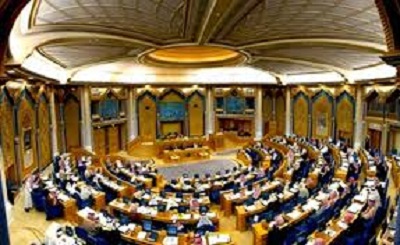




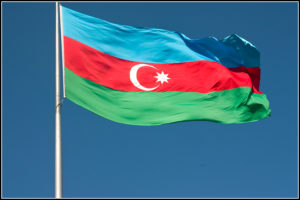




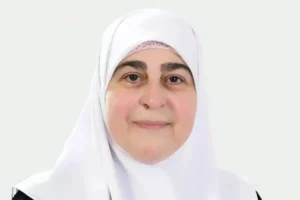
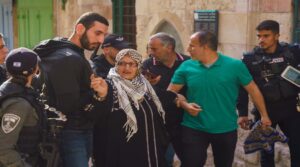










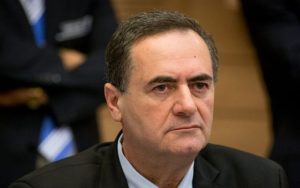
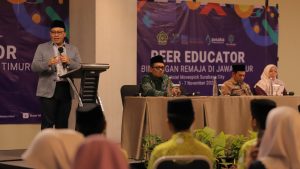



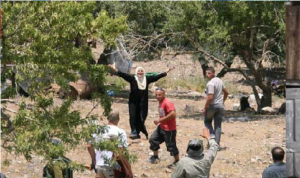



 Mina Indonesia
Mina Indonesia Mina Arabic
Mina Arabic